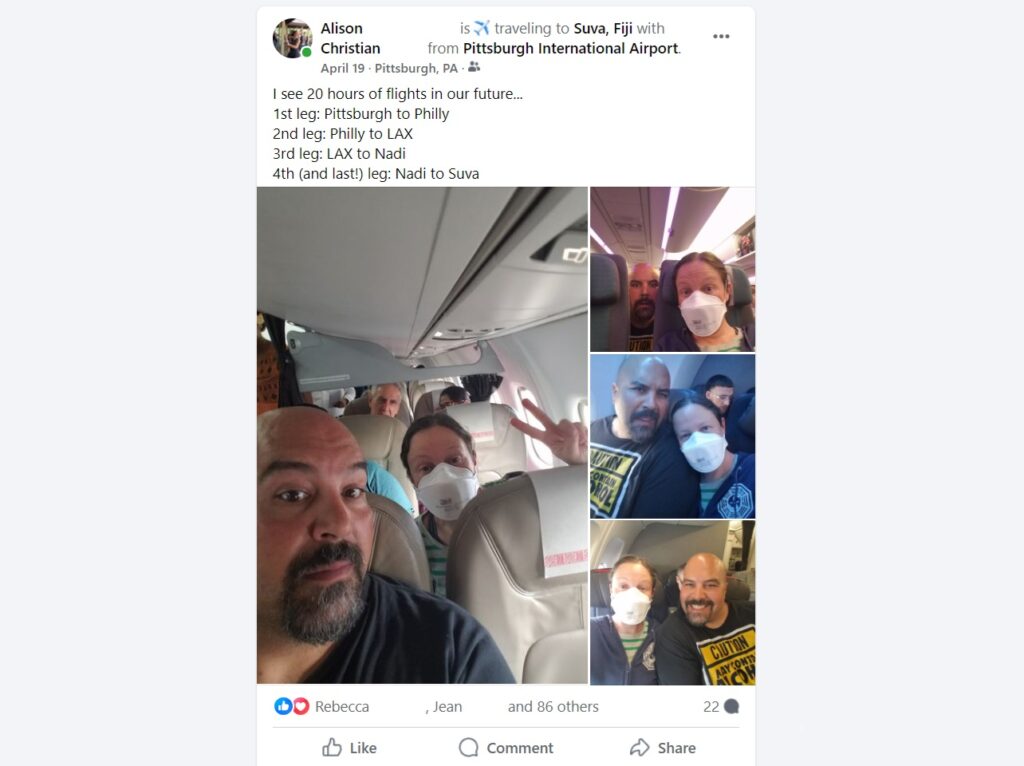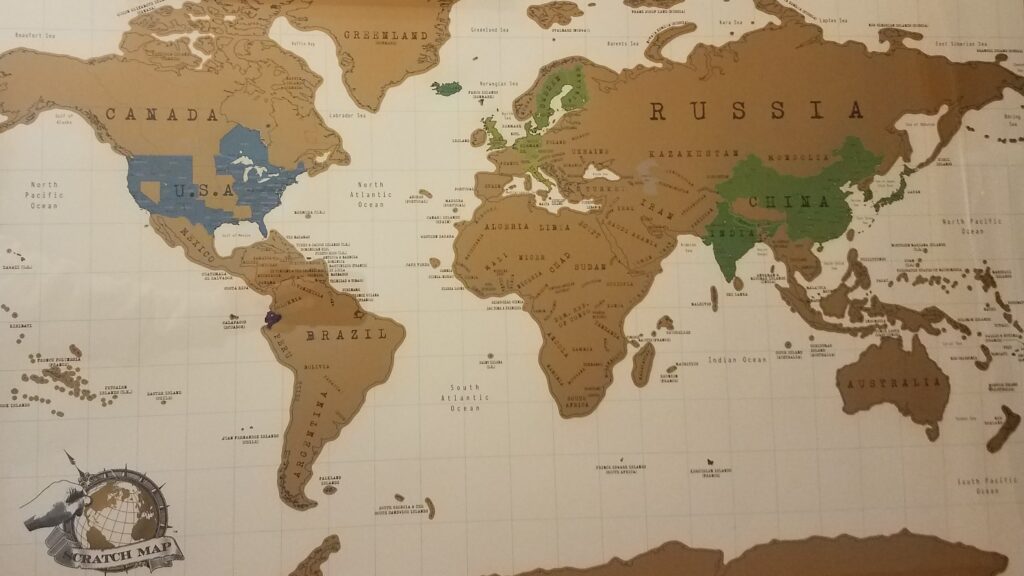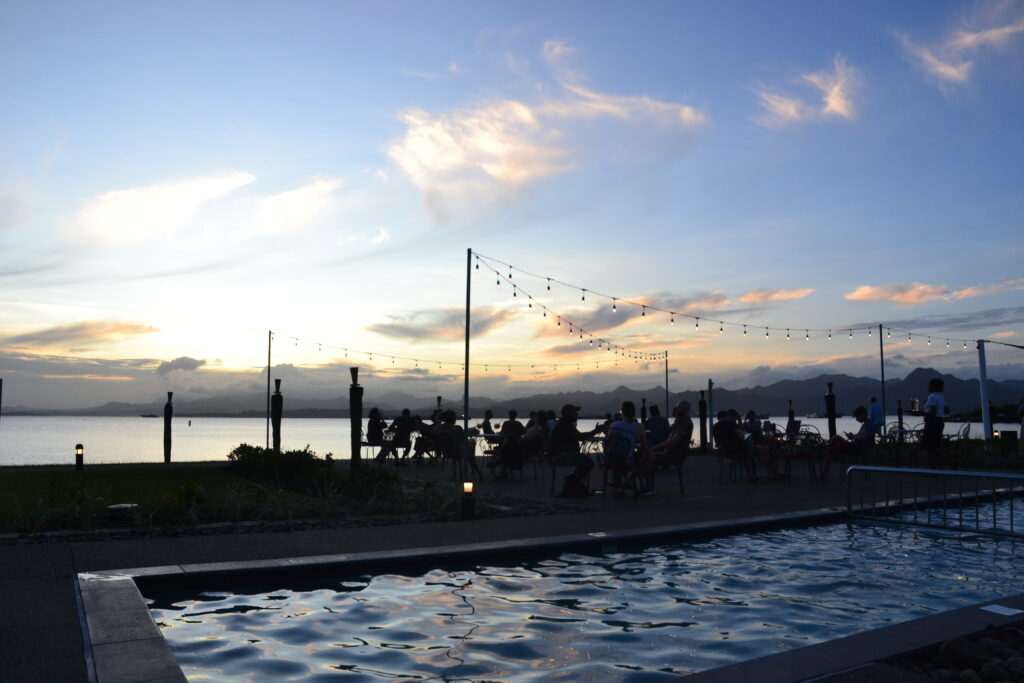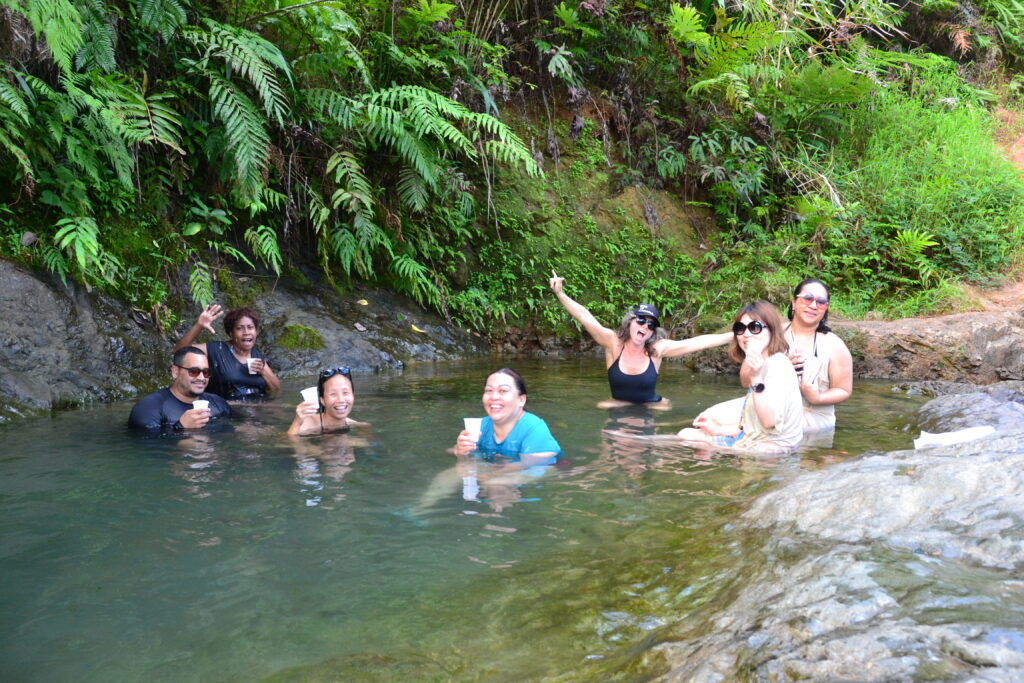I’ve had the incredible good fortune and privilege to travel during my life – not to the extent of some of my friends, but far more than many others. By the time I was out of high school, I had been to Puerto Rico, Canada, and the UK, thanks to band and orchestra trips, but those were highly organized and sanitized – as necessitated by the sheer logistical challenge of moving hundreds of teenagers in any way that resembled order. It wasn’t until a study abroad trip to Ecuador during my sophomore year of college that I got a real sense of what travel could be – and that experience fundamentally changed who I am and how I exist in the world.
“Reason for Travel?”
I’ve written about that Ecuador trip before on this blog, [1], [2] so I’ll limit the level of detail here, but our continuing travels in Fiji this May after my week-long Climate Lab session had wrapped up certainly piqued my curiosity about similarities in both of those trips, especially from the standpoint of authenticity of interactions, difficulty level of the experience, and sense of purpose upon returning home. Certainly, the biggest similarity was that both trips were arranged within the structure of an educational program, in which each student was tasked with pursuing knowledge in a subject area that was meaningful for us: in Ecuador, it was understanding the factors that led to – and impacts that resulted from – deforestation; in Fiji it was exploring how communication channels up and down the structure of government enabled – or limited – informed and equitable decision making.

Approaching these travels from an academic sense certainly influenced my mindset while I was there, but I believe that the truly impactful factor was how far I was traveling, not geographically, but outside my established comfort zone. I have firmly believed for years that travel can be a means for broadening perspectives, awareness, and empathy – and the more different the culture from the one you’re used to, the bigger the impact you may experience. Coming from the United States, some of these differences are likely going to be the most pronounced when visiting developing countries. (And yes, I recognize that even the term “developing countries” can be fraught, but there aren’t many alternatives that are accurately descriptive or meaningful, [3] so – with apologies – that is the term I’ll largely be using.)
While Fiji is one of the more developed economies in the Pacific, it is still considered a developing country. Tourism plays a huge role in Fiji’s economy, and it is expected to contribute to continued economic growth in 2024, [4] but there is often a massive gap between what tourists experience at a resort and what locals experience as part of their daily lives. That concept isn’t exclusive to developing countries – we saw the same thing in January in Hawai’i – but it is a reason why many people who travel draw a distinction between “touristy” and “non-touristy” activities. (We heard the distinct labels of “tourist” vs. “traveler” during a Climate Lab session in Fiji.) My search for authentic interactions with locals has absolutely defined how I’ve approached travel over the last 20 years, and it’s highly likely that it all started with the homestays and ecotourism experiences arranged for our anthropology class in Ecuador.
“The Case Against Travel”
Now, don’t get me wrong – I have absolutely prized both quality and quantity when it comes to travel. I want meaningful experiences all over the world, not just to be able to list an impressive number of countries visited (says someone who actually owns a scratch-off world map). That may be why I had such an adverse reaction to a New Yorker article I saw in February after returning home from what was a very meaningful trip to Hawai’i with the Climate Lab. “The Case Against Travel” [5] has camped out in the back of my brain on a growing list of future blog topics, waiting for a rebuttal for several months now. But now that I’ve reread it in preparation for this post, I’m not sure it deserves more than a paragraph.

Both the title and subheading (“it turns us into the worst version of ourselves while convincing us that we’re at our best”) seem to have been designed as aggravating clickbait, especially after reading the article itself, which meanders around its thesis statement without providing any convincing evidence as to why travel is a bad thing. At most, the author states that travel is not as transformative as we give it credit for – with noted exceptions “for the purpose of art, of study, and benevolence” – and so we should stop trying to imbue it with meaning if it’s simply meant to be a change of scenery.
- She asserts that approaching travel as box-checking (i.e. “yes, I saw the Mona Lisa while in Paris”) is not satisfying if the activity isn’t personally meaningful to you. That seems obvious, but yes, I agree, which is why I try to organize my trips around my own priorities, not others’.
- She asserts that tourists tend to influence their surroundings more than they are influenced by their surroundings. I agree with that too, which is why I try to identify ways in which I can minimize the extractive nature of my presence in someone else’s home, give back in a meaningful way, and apply things I’ve learned once I return home.
- She asserts that travel is not transformative, and that we cannot judge whether we ourselves have been transformed after the fact. I say that’s a nice way to give herself an “out” when I call bullshit on that claim.
I can absolutely point to my travels in Ecuador as having changed my life. The experience of returning home and seeing how much we take for granted every day – from electricity, to clean water, to selections at the grocery store – is something I consider to be “part one” of my environmental awakening (“part two” happened while living in Japan, sorting my recyclables). During my time in Fijian villages, the contrast in quality of life was no longer novel (as it had been in Ecuador), but some of the experiences I had there (notably regarding gender roles [6]) still put me outside of my comfort zone and forced me to evaluate and learn from my own biases. For the record, I plan to apply those lessons as I strive to find better ways to get people to work together effectively on complex issues.

If there was a purpose for writing this article, other than having a contrarian take that would incense world travelers and garner more clicks for the New Yorker’s website, it was unclear. I don’t want to guess at the author’s intentions, but had she connected some of these disparate thoughts to a “so what” conclusion grounded in real-world consequences, I might have been able to get on board with it. Such a thesis might read like something along these lines:
“Many people travel because it’s something they feel they’re ‘supposed’ to want to do, whether or not it’s something they actually want to do; therefore, in order to make travel more palatable for people who don’t truly want to leave their comfort zones, we create options (e.g. resorts, cruises, etc.) that are easy but not very transformative for them; in doing so, we often create systems that are extractive, exploitative, and even harmful to the places we visit; therefore, if true, transformative travel isn’t something you’re interested in, there may be alternative ways of spending your time and money that are more enjoyable and meaningful to you while also being less impactful to the environment and other cultures.”
But she didn’t say that.
Searching for Authenticity
Clearly I took issue with this article, and it bothered me enough that I’m still thinking about it over half a year later. It is likely that I am reacting so strongly because I do feel a certain level of shame related to my travels – that I travel too much or have too big an environmental impact, that I don’t do enough to give back in a meaningful way while I’m there, or that I spend too much time documenting the experience on social media (like a tourist!) rather than simply being in the moment. But I do deeply value the learning experiences I’ve had while traveling, which is why I try to incorporate activities related to my interests and aim for as much genuine, authentic interaction as possible.
I won’t lie, though: Fiji was a challenge on those fronts (and I recognize that not everyone wants their vacation to be a challenge). Time constraints pre-departure really limited how much planning I could do ahead of time, which locked us into some more touristy stays and activities than I otherwise would have picked. Weather, transportation availability, and illness also limited our options for spontaneous adventuring while we were there. Ultimately, though, it was Christian’s first time to a developing country, and it was definitely outside his comfort zone in many ways, so it may have been better, regardless, to err on the side of “tourist” rather than “traveler.”

But with all that said, looking back on my trip to Fiji (especially the week of vacation that followed my week with the Climate Lab), I’m starting to realize that there is no firm dividing line between touristy and non-touristy activities, between authentic and inauthentic experiences – that it’s more of a spectrum, and where you fall on that spectrum sometimes depends as much on the situation as it does on your intentions. We’ll continue with some of those specific situations next week.
Until then, thanks for reading!
[1] https://radicalmoderate.online/fifth-anniversary-wood/
[2] https://radicalmoderate.online/tuscan-agriturismo/
[5] https://www.newyorker.com/culture/the-weekend-essay/the-case-against-travel
[6] https://radicalmoderate.online/climate-lab-fiji-in-the-field-continued/
1 Comment
rjwarren59c8cb9109c0 · September 25, 2024 at 7:35 pm
Hanging out with the locals in the water hole, (not touristy ) you have been adopted into the family. People should go to serve in other home lands. Get piece. You are so very talented and worldly.❤️❤️❤️❤️I just adore your
A.B.